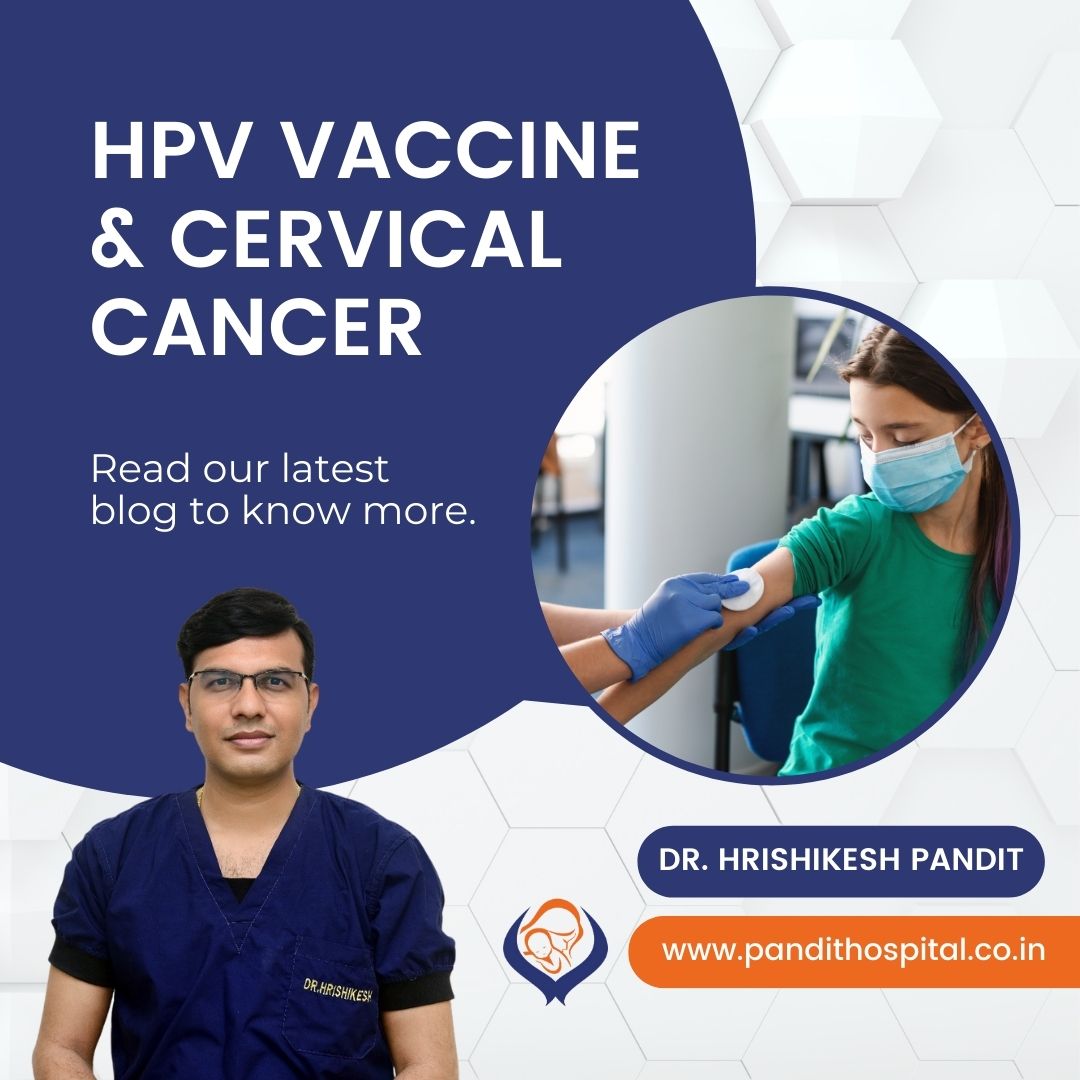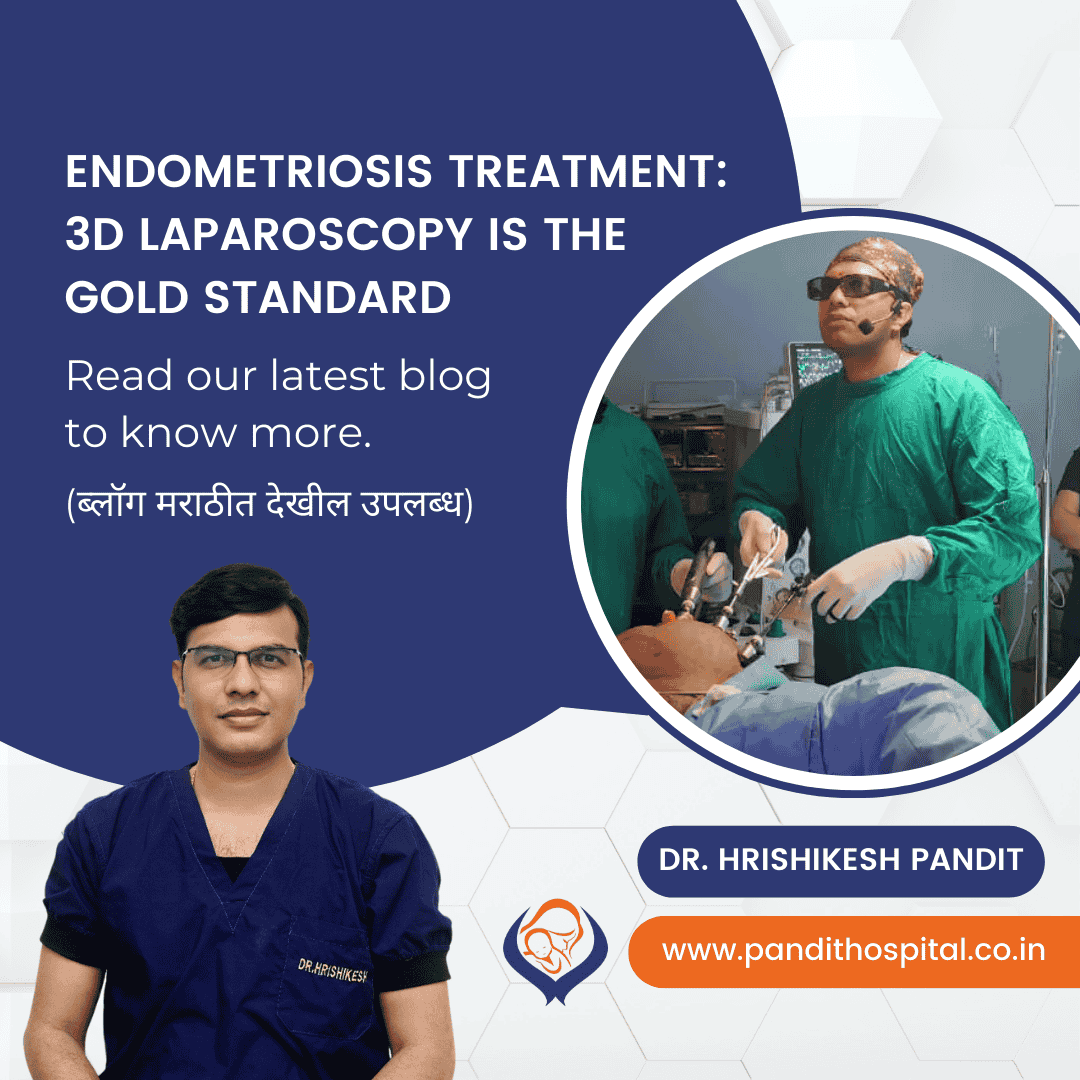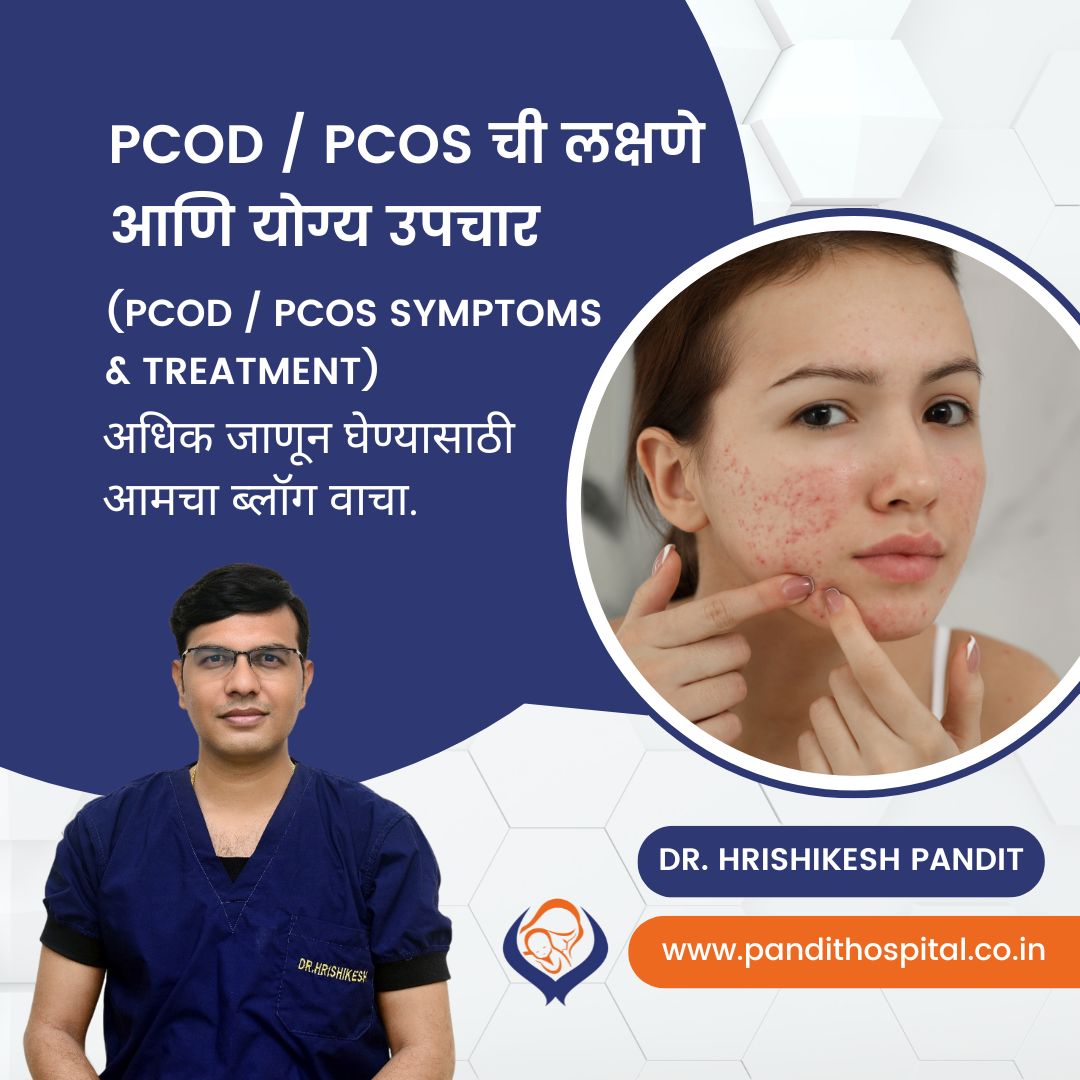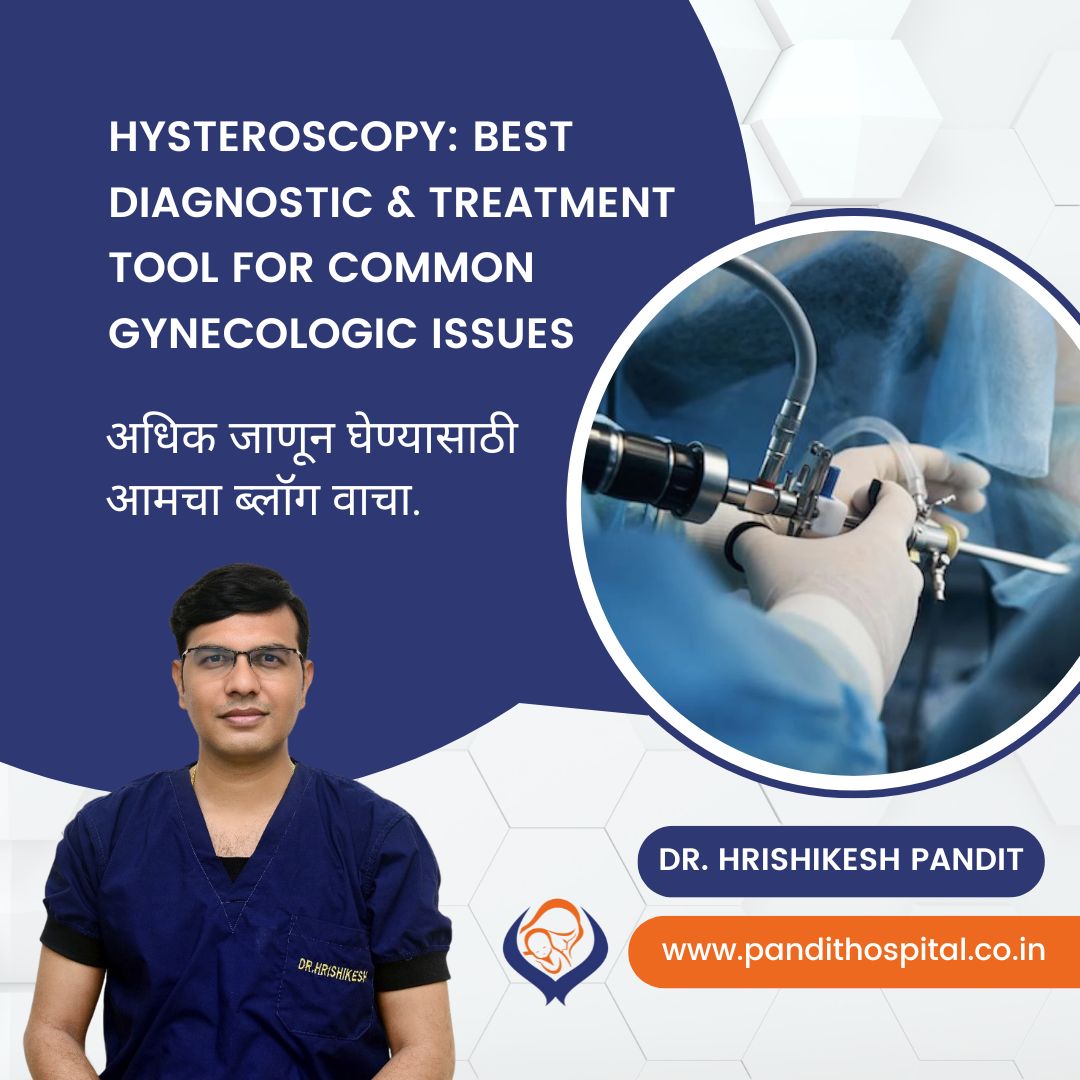Cervical cancer remains a significant health concern worldwide, affecting women of all ages. However, advancements in medical technology, including the HPV vaccine and innovative surgical techniques like laparoscopy, offer hope in the fight against this disease. At Pandit Hospital in Ahmednagar, Dr. Hrishikesh Pandit stands as a pioneer in 3D laparoscopic surgery, providing comprehensive cervical cancer management.
Read this blog in Marathi or Hindi
Cervical cancer is primarily caused by persistent infection with high-risk strains of the human papillomavirus (HPV), a common sexually transmitted infection. The HPV vaccine, a breakthrough in preventive medicine, offers protection against several strains of the virus, reducing the risk of cervical cancer development. Administering the HPV vaccine to adolescents and young adults is crucial in preventing HPV infection and subsequent cervical cancer.
Pandit Hospital, under the leadership of Dr. Hrishikesh Pandit, recognizes the importance of preventive measures such as HPV vaccination. Through educational programs and vaccination drives, the hospital aims to raise awareness and increase vaccination rates in the community, ultimately reducing the incidence of cervical cancer.
Despite preventive efforts, some individuals may still develop cervical cancer. In such cases, timely diagnosis and effective treatment are essential. Traditional surgical approaches for cervical cancer often involve open procedures with longer recovery times and increased risks of complications. However, advancements in minimally invasive surgery, particularly laparoscopy, have transformed the landscape of cervical cancer treatment.
Dr. Hrishikesh Pandit and his team at Pandit Hospital specialize in 3D laparoscopic surgery for cervical cancer management. This state-of-the-art technique utilizes advanced imaging technology and precision instruments, allowing for enhanced visualization and precise surgical maneuvers. Compared to traditional surgery, laparoscopy offers numerous benefits, including smaller incisions, reduced postoperative pain, shorter hospital stays, and faster recovery times.
The expertise of Dr. Hrishikesh Pandit and the team at Pandit Hospital in performing laparoscopic surgery has resulted in improved outcomes and patient satisfaction. Through personalized treatment plans and compassionate care, they strive to provide the highest standard of care to women facing cervical cancer.
In conclusion, cervical cancer remains a significant health challenge, but advancements in preventive measures such as the HPV vaccine and innovative treatment modalities like laparoscopic surgery offer hope and improved outcomes for patients. Dr. Hrishikesh Pandit’s pioneering efforts in 3D laparoscopy surgery at Pandit Hospital in Ahmednagar are instrumental in providing comprehensive cervical cancer management and improving the quality of life for women in the community. With continued research, education, and access to cutting-edge technologies, we can further advance the fight against cervical cancer and strive for a future free of this devastating disease.
At Pandit Hospital, you are in safe hands!
To consult Dr. Hrishikesh Pandit, Click Below,
Pandit Hospital – Best Maternity care center in Ahmednagar
LET’S SEE OUR INTRO VIDEO
At Pandit Hospital, we provide all the maternity services from antenatal to postnatal period under one roof
Let's Connect!!
0241-2441717 / 0241-2442344
About author:
Dr. Hrishikesh Pandit:
Dr. Hrishikesh Pandit is one of the best obstetrician and gynecologist in India. He is also a well-renowned Laparoscopic surgeon. He obtained his MS (Ob Gyn) degree from the prestigious Pravara Institute of Medical Sciences. He has also done fellowship and diploma courses in laparoscopic surgeries and cancer treatment from Tata Hospital and Keil University, Germany. His surgical cases, papers and videos has been chosen in many international forums of gynecology.
At Pandit Hospital, we are always working hard to provide its patients with the highest level of medical innovation and patient care. With the aim of delivering complete maternity & gynecological care under one roof with the help of all contemporary amenities and cutting-edge medical equipment. Dr. Hrishikesh Pandit has a vision to bring the best of facilities regarding laparoscopy surgeries in the city of Ahmednagar. He is the pioneer of 3D Laparoscopy technology is Ahmednagar.
Latest Articles
Dr. Hrishikesh Pandit is one of the best laparoscopy surgeons in India. His determination to bring 3D Laparoscopy technology to Ahmednagar has eventually helped so many patients. Read the latest articles by Dr. Hrishikesh Pandit on Gynecology, gastric issues, and health tips for mothers during pregnancy.
Dr. Hrishikesh Pandit, a pioneer of 3D laparoscopy in India, is a leading laparoscopic gynecologist with vast experience in managing complex endometriosis cases. Contact pandit hospital, Bhingar, ahmednagar today!
पीसीओडी म्हणजेच पॉलीसिस्टिक ओव्हेरियन डिसीज हि महिलांमध्ये उद्भवणारी मासिक पाळीशी संबधित स्तिथी आहे PCOD / PCOS symptoms & treatment marathi
Dr. Hrishikesh Pandit, Top Hysteroscopy Surgeon, provides hysteroscopy treatment for gynecologic issues like infertility, fibroids, polyps, adhesion removal. Contact pandit hospital, Bhingar, ahmednagar today!
FAQ
You should consult a doctor during the first 6 to 8 weeks of your pregnancy, or when your period is 2 to 4 weeks late.
If your contractions are 5 minutes apart, lasting for 1 minute, for 1 hour or longer, it’s time to head to the hospital.
Doctors recommend an infertility evaluation if you have not gotten pregnant after 1 year of having regular sexual intercourse without using birth control. If you are older than 35, an evaluation is recommended after 6 months of trying.
Yes, You can. But most babies need 39 weeks to develop fully. Induced or planned delivery before that time—without a valid medical reason—is not in the best interest of the baby or the mother. After 39 weeks you can plan delivery.
Women who are 21 to 29 should have a Pap test alone every 3 years. HPV testing alone can be considered for women who are 25 to 29, but Pap tests are preferred. Women who are 30 to 65 have three options for testing. They can have a Pap test and an HPV test (co-testing) every 5 years. They can have a Pap test alone every 3 years. Or they can have HPV testing alone every 5 years.
Laparoscopic hysterectomy is a safe and suitable procedure for chosen patients. It affords patients advantages like less peri-operative morbidity, better life quality, shorter hospitalization time, and faster return to activity.
Schedule a doctor’s visit if you have: Greenish, yellowish, thick or cheesy vaginal discharge; Strong vaginal odor; Redness, itching, burning or irritation of your vagina or the area of skin that surrounds the vagina and urethra (vulva); Bleeding or spotting unrelated to your period.
Painless delivery can be achieved using a form of regional anesthesia that provides pain relief during natural labor. Epidural anesthesia is administered through an injection on the lower back of the mother. The drug takes about 10-15 minutes to take effect.
Even in severe cases of endometriosis, most can be treated with laparoscopic surgery. In laparoscopic surgery, your surgeon inserts a slender viewing instrument (laparoscope) through a small incision near your navel and inserts instruments to remove endometrial tissue through another small incision.
The HPV vaccine is recommended for routine vaccination at the age of 11 or 12 years. (Vaccination can be started at age 9.) It is also recommended that vaccination for everyone through age 26 years if not adequately vaccinated when younger. HPV vaccination is given as a series of either two or three doses, depending on age at initial vaccination.





